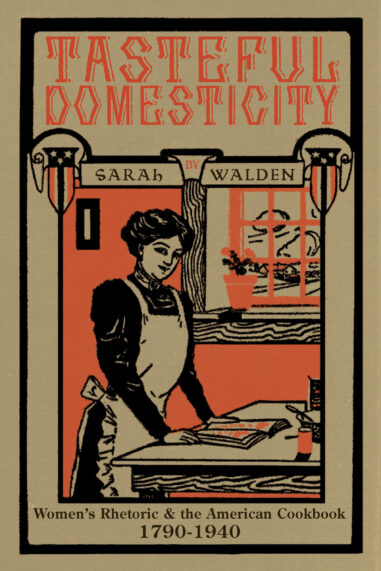

Paperback $45.00
Request Exam or Desk Copy. Request Review Copy
Tasteful Domesticity
Women's Rhetoric and the American Cookbook, 1790-1940
Walden advances the scholarship on cookbooks and housekeeping advice manuals by examining them through the lens of 'taste' and rhetorical theory. She demonstrates how such texts functioned in contradictory and complex ways, revealing in new ways the truly intersectional nature of domestic ideology—how prescriptive norms around home, gender, race, class, nation, and ethnicity work together and through each other.

